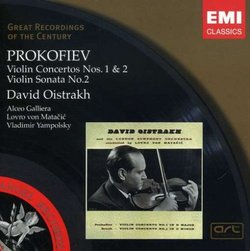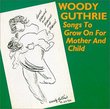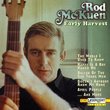| All Artists: Sergey Prokofiev, Lovro von Matacic, Alceo Galliera, London Symphony Orchestra, Philharmonia Orchestra of London, Vladimir Yampolsky Title: Prokofiev: Violin Concertos Nos. 1 & 2; Violin Sonata No. 2 Members Wishing: 0 Total Copies: 0 Label: EMI Classics Release Date: 9/7/2004 Album Type: Original recording remastered Genre: Classical Styles: Chamber Music, Forms & Genres, Concertos, Historical Periods, Classical (c.1770-1830), Instruments, Strings Number of Discs: 1 SwapaCD Credits: 1 UPC: 724356288928 |
Search - Sergey Prokofiev, Lovro von Matacic, Alceo Galliera :: Prokofiev: Violin Concertos Nos. 1 & 2; Violin Sonata No. 2
 | Sergey Prokofiev, Lovro von Matacic, Alceo Galliera Prokofiev: Violin Concertos Nos. 1 & 2; Violin Sonata No. 2 Genre: Classical
|
Larger Image |
CD DetailsSimilarly Requested CDs |
CD ReviewsBrilliant, But Collectors Beware Michael B. Richman | Portland, Maine USA | 01/05/2005 (4 out of 5 stars) "These mono recordings of Prokofiev's Violin Concertos are nothing short of brilliant, and despite their mono sound, are in the opinion of many the best accounts ever recorded. The problem is serious collectors most likely already own two-thirds of the contents of this disc. You see, in the past EMI has licensed out many of their more specialized performances to a British company called Testament. The very same performances featured here of the Concerto No.1 and Violin Sonata No. 2 were previously issued on Testament's SBT 1116 (see my review) & 1113 CDs respectively. While novice fans stumbling upon this CD in the bins at their local store could care less about this fact, it is a major problem for serious collectors like myself. It is often hard enough to avoid purchasing duplicate material on the same record label with the numerous reissues that have drifted in an out-of-print over the years, let alone encountering the same music on different labels. Though coming from a jazz background, I shouldn't be surprised with EMI's tactics. This is the same kind of thing they do all the time with Mosaic Records -- authorizing the production of limited edition boxed sets then when the Mosaic edition sells out, re-releasing the same music as single titles on their own brand. In fact, I know of at least one other upcoming release, the Guido Cantelli offering in EMI's "Great Artists of the Century" series, that will duplicate yet another Testament title -- "The Debussy Recordings" SBT 1011 (see my review). So in summary, EMI has produced some great reissues lately, just make sure you don't already own them." Incredible Music, Incredibly Played Donald G. Hite III | Houston, Tx USA | 07/12/2006 (5 out of 5 stars) "This is a really great Cd, for many reasons. Firstly, the music itself is incredible. Prokofiev's First Violin Concerto is a great piece of music. In many ways, it is typical Prokofiev, exciting, quirky, abrasive. But at other times, it is so ethereal and beautiful. The orchestra part is very light and transparent, which allows each individual instrument to shine in its own way (particularly in the spectacular scherzo). The 2nd Violin Sonata was originally a flute sonata, but Oistrakh (who was a good friend of Prokofiev) helped him transcribe it for violin. A flautist friend of mine who was writing a college paper about Prokofiev told me that she read that the flautist who premiered the sonata was drunk at the time, which prompted Oistrakh to declare he could play the piece much better. I don't know if that's actually true, but if I've read enough Dostoevsky that it doesn't seem too far fetched for a Russian (just kidding!). It's very neo-classical in form, which provides a nice canvas for Prokofiev's often humorous writing (compared to the much more intense 1st Violin Sonata - also a wonderful piece). I don't like the 2nd Violin Concerto as much. It's not a bad piece, but I don't think its as memorable as either of the other two pieces. Oistrakh's playing, as usual, is impeccable. His tone is full and beautiful in every register and he navigates the speedy Scherzo of the 1st concerto with more clarity than any other player I've heard. I don't think that Oistrakh's playing is too tame on this disc. I think we often attribute the craziness with which many violinist play these pieces to being intentional or purely for effect. On the other hand, I think in many cases it may simply be a product of how difficult the music is. It's much harder to play this music cleanly and controlled than it is to rip through it "crazily" (although I also enjoy that approach - check out Josefowicz's recording for a much crazier rendition). However, I don't think that Oistrakh's uncanny technical mastery is a hinderance to his expressive abilities. On the other hand, being such a technical good player allows him to phrase subtlely and tastefully at all times, even when playing passages that would have most other violinst simply hoping to get through it. I don't like referring to any given recording as a benchmark or definitive this or that... I think all artists have something different to offer (which is how I justify buying so many different versions of the same pieces...). However, if I HAD to declare one recording the best, I think this would have to be it. Enjoy!" Great addition to a music lover's collection... Grande Inquisitor | Mexico City, MX | 04/23/2005 (5 out of 5 stars) "...just as long as you're starting it. You may only want to read this if you're new to this music because the past reviewer has wisely mentioned it, this has been previously released, and sometimes if your collection grows, it's difficult to keep track of the CDs you own, so careful! Now, if you are new to REAL music, it's a great choice, even more so for a violinist, since it features a must-listen piece: Prokofiev's beautiful No2 concerto performed by the magnificent David Oistrakh, one of the most recognizable names among violinists. Concerto No1, though shorter than most other violin concertos, is also worth listening; plus, it has the violin sonata No2 as a bonus! So if you're a newbie to classical music then by all means buy it, and don't stop there! After that get Tchaikovsky's violin concerto and the Brandenburg Concerts and Mozart's operas and..."
|

 Track Listings (10) - Disc #1
Track Listings (10) - Disc #1

![Seussical [2000 Original Broadway Cast]](https://nationalbookswap.com/cd//m/02/4802/514802.jpg)